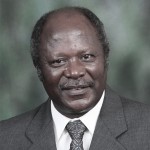 Gordon Conway (Chair), Professor of International Development, Imperial College London
Gordon Conway (Chair), Professor of International Development, Imperial College London
Gordon Conway trained in agricultural ecology, attending the Universities of Bangor, Cambridge, West Indies (Trinidad) and California (Davis). In the 1960’s he was a pioneer of sustainable agriculture developing integrated pest management programs for the State of Sabah in Malaysia. He joined Imperial College in 1970 setting up the Centre for Environmental Technology in 1976.
In the 1970s and 1980s he lived and worked extensively in Asia and the Middle East, for the Ford Foundation, World Bank and USAID. He directed the Sustainable Agriculture Programme at IIED and then became representative of the Ford Foundation in New Delhi. Subsequently he became Vice-Chancellor of the University of Sussex and Chair of IDS.
From 1998-2004 he was President of the Rockefeller Foundation and from 2004-2008 Chief Scientific Adviser to DFID and President of the Royal Geographical Society. He is a KCMG, Deputy Lieutenant of East Sussex, Hon Fell RAEng and FRS. He holds five honorary degrees and fellowships. He is the author of ‘The Doubly Green Revolution: Food for all in the 21st Century’ Penguin and Cornell.
 Camilla Toulmin (Vice Chair), Director, International Institute for Environment and Development (IIED)
Camilla Toulmin (Vice Chair), Director, International Institute for Environment and Development (IIED)
Camillla Toulmin has been the Director of IIED since 2004 and has focused on developing the Institute’s strategy and communications. Under her leadership IIED has grown from £5 million turnover per year in 2005 to more than £20 million in 2010-11. IIED’s new strategy for 2009-14 focuses on four principal goals that bring together the institute’s diverse areas of work on climate change, human settlements, natural resources, and sustainable markets.
An economist by training, Camilla has worked mainly in Africa combining field research, policy analysis and advocacy to understand how environmental, economic and political change impact on people’s lives, and how policy reform can bring real change on the ground. She has worked with people at many different levels from farmers and researchers, to national governments, NGOs, donor agencies and international bodies. Camilla studied Economics at Cambridge and London, before gaining her doctorate in Economics at Oxford. She is fluent in English and French. She is trustee of ICARDA (Syria), the Franco-British Council and a number of other boards. Her latest book is Climate change in Africa (Zed Books, 2009).
 Tom Arnold, Director General, Institute for International and European Affairs and Special Hunger Representative, Concern Worldwide
Tom Arnold, Director General, Institute for International and European Affairs and Special Hunger Representative, Concern Worldwide
Tom Arnold was CEO of Concern Worldwide until February 2013, when he became Chair of the Irish Constitution . He was previously Assistant Secretary General and Chief Economist in the Department of Agriculture and Food in Ireland. He worked for the European Commission for 10 years, three of which were in Africa. He was Chairman of the Organisation of Economic Co-operation and Development (OECD) committee for agriculture (1993-1998). He served on the UN Millennium Project’s Hunger Task Force (2003-05), was a member of the Irish Hunger Task Force (2007-08) and the UN’s Central Emergency Response Fund’s (CERF) Advisory Group (2006-09). He was Chairman of the European Food Security Group (EFSG) a network of 40 European NGOs engaged in food security work (2005-10). He was a member of the Irish Government’s Commission on Taxation (2008-09).
Mr Arnold was elected in 2010 to the nine member Board of the Consultative Group for International Agricultural Research (CGIAR) charged with leading the reform of the international agriculture research system. He is a member of the International Food Policy Research Institute’s (IFPRI) advisory Board. He is also a Director Governor the Irish Times, Ireland’s leading newspaper.
Tom Arnold is a graduate in Agricultural Economics from University College Dublin and has Masters Degrees from the Catholic University of Louvain and Trinity College Dublin.
 Dr. Ousmane Badiane, Africa Director for the International Food Policy Research Institute (IFPRI)
Dr. Ousmane Badiane, Africa Director for the International Food Policy Research Institute (IFPRI)
Dr. Ousmane Badiane is the Africa Director for the International Food Policy Research Institute (IFPRI). In this role, he oversees the institute’s two regional offices for West and Central Africa in Dakar and Eastern and Southern Africa in Addis Ababa. He coordinates IFPRI’s work program in the areas of food policy research, capacity strengthening, and policy communications in Africa. He is also in charge of IFPRI’s partnerships with African institutions dealing with the above areas. As an Advisor to the NEPAD Secretariat from 2004 to 2007, he was instrumental in developing and guiding the implementation of the Comprehensive Africa Agriculture Development Programme (CAADP). Before his current tenure at IFPRI, Dr. Badiane, a national of Senegal, was Lead Specialist for Food and Agricultural Policy for the Africa Region at the World Bank from January 1998 to August 2008. He previously worked at IFPRI as Senior Research Fellow from 1989 to 1997, when he led the institute’s work on market reforms and development. While at IFPRI, he taught Economics of Development in Africa, as adjunct professor at Johns Hopkins University’s School of Advanced International Studies from 1993 to 2003. Dr. Badiane received a Master’s Degree and PhD in agricultural economics from the University of Kiel in Germany. His awards include a Doctoral Degree Honoris Causa from the University of KwaZulu Natal in South Africa and induction as Fellow of the African Association of Agricultural Economics.
 Joachim von Braun, Director, ZEF, University of Bonn
Joachim von Braun, Director, ZEF, University of Bonn
Joachim von Braun is an applied and agricultural economist, with a Doctoral degree from University of Goettingen, Germany. He joined ZEF in December 2009. He was also a Director at ZEF during its foundation phase 1997-2002. Before returning to ZEF, von Braun was Director General of the International Food Policy Research Institute (IFPRI) based in Washington, DC, U.S.A. 2002 to 2009. IFPRI provides research based solutions for ending hunger and malnutrition, and while being the primary global institute in the field of agricultural economics and food policy research it is also among the top 1% of institutes engaging in development economics.
Under von Braun’s leadership IFPRI more than doubled to more than 300 staff members with teams based in Africa, Asia and Latin America. von Braun also has been Professor for Food Economics and Policy at Kiel University, Germany. His published research addresses international development economics topics, incl. science and technology; policy issues of trade and aid; poverty and famine; health, and nutrition, and a range of agricultural economics res earch issu es. von Braun serves on boards of publishers of journals, as well as international advisory bodies of research and policy organizations.
2000-03 he was President of the Inte r national Association of Agricultural Economists (IAAE), is member of Academies in Germany and China, Fellow of the American Association for the Advancement of Sciences; among awards received by von Braun are a hon ora ry Doctoral degree from University of Hohenheim, and the Bertebos Prize of the Swedish Academy of Agricultural Sciences.
 Henri Carsalade, AfricaRice Board Member and Chairman of Agropolis Foundation Board of Directors
Henri Carsalade, AfricaRice Board Member and Chairman of Agropolis Foundation Board of Directors
An expert in the administration and management of development and research, international relations, agreements and fund raising, Mr Henri Carsalade is retired from the French administration where he was a member of the General Council for Agriculture, advising the Minister of Agriculture of France.
He is a former Director General of CIRAD in France and a former Assistant Director General of the Sustainable Development and Technical Cooperation departments in FAO. From 1995 to 2000 he represented FAO as co-sponsor of the CGIAR. He chaired Agropolis International, Montpellier, from 2006 to 2009 and is currently Chairman of the Board of Trustees of Agropolis Fondation in Montpellier where he lives.
He is a former Chair of the Board of Trustees of ISNAR and WARDA and a former Board member of IFPRI. He chaired the Committee of Board Chairs of the CGIAR. He is currently Chairman of the Board of Trustees of ICARDA and also member of the Board of Africa.
 Peter Hazell, Visiting Professor, Imperial College London
Peter Hazell, Visiting Professor, Imperial College London
Dr. Peter Hazell has devoted most of his career to research and advisory work on policy issues related to agricultural development. Initially trained as an agriculturalist in England, he completed his Ph. D. in agricultural economics at Cornell University in 1970. After a post-doctoral assignment with the University of Newcastle-upon-Tyne where he worked on adjustment issues facing British agriculture following the UK’s accession to the EC, he joined the World Bank to pursue a research career in international agricultural development. From 1972 to 2005 he held various research and management positions at the Bank and the International Food Policy Research Institute (IFPRI). After retiring from IFPRI he became a Visiting Professor at Imperial College London and a Professorial Research Associate at the School of Oriental and African Studies (SOAS), University of London.
Peter’s extensive and widely cited publications include works on new methods of using mathematical programming to solve farm and agricultural sector planning problems under risk; the impact of technological change on growth and poverty reduction; the appropriate role of agricultural insurance in developing countries; agriculture’s growth linkages to the rural non-farm economy; sustainable development strategies for marginal lands; and the role of agriculture and small farms in economic development. Peter has worked extensively throughout Africa, Asia, the Middle East and Latin America and has advised several key international and donor agencies on th ei r agricultural devel op ment strategies. He was elected a Fellow of the American Agricultural Economics Association in 2005, and his work in Ind i a was recognized through the award of D.Sc. (Honori s Caus a ) by Tamil Nadu Agricultural University in 2004.
 Jane Karuku, President of the Alliance for a Green Revolution in Africa (AGRA)
Jane Karuku, President of the Alliance for a Green Revolution in Africa (AGRA)
Ms. Karuku, a Kenyan, took up the presidency of AGRA in April 2012, after serving as Deputy Chief Executive and Secretary-General of Telkom Kenya. During her tenure at Telkom Kenya, she was credited with the transformation of the organization. Ms. Karuku has a 20-year proven track record as a management leader and has held senior positions in a number of international corporations, including Cadburys Limited, where she worked as the Managing Director for East and Central Africa. At Cadburys, she was responsible for operations in 14 countries across Africa and during her tenure she conceived and implemented a highly successful growth program for the business in this period. Prior to that Ms. Karuku worked with Farmers Choice Kenya and Kenya Cooperative Creameries. She sits on various boards, including Barclays Bank -Kenya, Junior Achievement-Kenya, United States International University-Kenya, the Global Repor ting Initiati ve, and East African Breweries Ltd.
 Namanga Ngongi, Former President, Alliance for a Green Revolution in Africa (AGRA)
Namanga Ngongi, Former President, Alliance for a Green Revolution in Africa (AGRA)
Namanga Ngongi was President of the Alliance for a Green Revolution in Africa (AGRA) from 2007-2012. He has diverse professional experience at national and international levels in areas rela ted to agriculture, food security and management of international organizations. He began his career in Cameroon working as an Extension Officer and Deputy Head of Projects in the Ministry of Agriculture. In 1980, he was appointed Representative to the United Nations (UN) food agencies in Rome.
He joined the World Food Program (WFP) in 1984 and became Deputy Executive Director in 1994. In 2001 he was appointed Special Representative of the UN Secretary General to the Democratic Republic of Congo, and led the peace keeping mission (MONUC) for two years. He helped put together the transitional government. Dr. Ngongi retired from the UN in 2003. He has since undertaken several high –level missions for the UN, including a study on food reserve systems in Africa and coordination of an international conference on disarmament, demobil ization and reintegration in Sierra Leone. Namanga holds a PhD ( Agronomy/Crop Science) 1976 from Cornell University.
 Hon. Prof. Ruth K. Oniang’o, Editor-in-Chief and Founder at African Journal of Food, Agriculture, Nutrition and Development (AJFAND)
Hon. Prof. Ruth K. Oniang’o, Editor-in-Chief and Founder at African Journal of Food, Agriculture, Nutrition and Development (AJFAND)
Professor Oniang’o is a noted leader in outreach to and work with smallholder farmers in Kenya, both through her work with the African Journal of Food, Agriculture, Nutrition and Development and with the Rural Outreach Programme, an NGO that supports resource-poor farmer groups engaged in production and agro-processing at the community level. As a member of Kenyan Parliament from 2003 to 2007, she worked to create awareness about poverty and hunger, with special focus on science and technology, agricultural research and productivity, food security, nutrition, bio-safety legislation, fertilizer and other input use, HIV/AIDS, and gender issues. She currently chairs Kenya’s Food Security and Nutrition Taskforce, which provides oversight for the implementation of the National Food and Nutrition Policy.
Professor Oniang’o served as lecturer and professor of food science and nutrition at Jomo Kenyatta University of Agriculture and Technology in Nairobi and is assisting Great Lakes University of Kisumu with its postgraduate, research and partnership programs. She has served on several national and international boards and advisory committees for the FAO, Bill & Melinda Gates Foundation’s Agriculture Strategy Advisory Committee, IFDC, IRRI, CGIAR, IFPRI, HarvestPlus, and numerous private sector entities. She is currently a member of the Sasakawa Africa Association Board of Trustees, is an advisor to the University of Leeds Africa College Initiative, and was recently admitted to the Australian Center for International Agricultural Research.
 Oumar Niangado, Delegate for West Africa at the Syngenta Foundation
Oumar Niangado, Delegate for West Africa at the Syngenta Foundation
Dr Oumar Niangado is the delegate of Syngenta Foundation for West Africa. Previously, he was the Director of the Cinzana Research Station in Mali and subsequently became the Director General of the National Agricultural Research Institute (Institut d’Economie Rurale (IER)). Dr Niangado has been a member of CIRAD’s scientific commission and CGIAR, as well as other scientific institutions including Fondation pour l’Agriculture et la Ruralité dans le Monde (FARM) and International Foundation for Science (IFS).
Whilst Director of the Cinzana research station, Dr Niangado was active in the development of the ROCAFREMI and ROCARS cereal networks. In partnership with the International Centre for Research in Agroforestry (ICRAF), Dr Niangado was pivotal in making Cinzana research station the main station of agroforestry it is today. As a cereal breeder, Dr Niangado has worked closely with the International Crop Research Institute for Semi-Arid Tropic (ICRISAT) on the development of technologies for the Sahelian zone; many varieties that were developed are now widely adopted in Mali.
Today, Dr Niangado’s work at the Syngenta Foundation is focused on linking smallholders to markets, testing different models of public-private-partnership (PPP) in Ghana, Cote d’Ivoire, Burkina Faso, Mali and Senegal on the rice value chain.
 Prabhu Pingali, Professor and Director, Tata-Cornell Agriculture and Nutrition Initiative, Cornell University
Prabhu Pingali, Professor and Director, Tata-Cornell Agriculture and Nutrition Initiative, Cornell University
Prabhu Pingali is the Deputy Director of the Agriculture Development Program at the Bill and Melinda Gates Foundation. He was formerly the Director of the Agricultural and Development Economics Division of the Food and Agriculture Organization (FAO) of the United Nations. Pingali was elected to the U.S. National Academy of Sciences as a Foreign Associate in May 2007, and he was elected Fellow of the American Agricultural Economics Association in 2006. Pingali was the President of the International Association of Agricultural Economists (IAAE) from 2003-06. He was named the “2010 Outstanding Alumnus” of North Carolina State University.
Pingali has over twenty five years of experience in assessing the extent and impact of technical change in developing country agriculture in Asia, Africa and Latin America. An Indian national he earned a Ph.D. in Economics from North Carolina State University in 1982. He was Director of the Economics Program at CIMMYT, Mexico from 1996-2002. Prior to joining CIMMYT, he worked at the International Rice Research Institute at Los Baños, Philippines from 1987 to 1996 as an Agricultural Economist, and prior to that at the World Bank’s Agriculture and Rural Development Department from 1982-1987 as an economist. He was a visiting scholar at Stanford University, Food Research Institute, and an Affiliate professor at the University of the Philippines at Los Baños. Prabhu Pingali has authored ten books and over one hundred referred journal articles and book chapters on technological change, productivity growth and resource management issues in Asia, Africa and Latin America. He has received several international awards for his work, including two from the American Agricultural Economics Association: Quality of Research Discovery Award in 1988 and Outstanding Journal Article of the Year (Honorable Mention) in 1995.
 David Radcliffe, Senior advisor, Agricultural Research for Development, DG Development and Cooperation, European Commission
David Radcliffe, Senior advisor, Agricultural Research for Development, DG Development and Cooperation, European Commission
David Radcliffe has a B.Sc in biochemistry and soil science from the University of Wales and an M.Sc in soil science from the University of Aberdeen. He is a member of the Institute of Professional Soil Scientists and of the Tropical Agriculture Association. Mr Radcliffe started his career with Hunting Technical Services as a soil surveyor on agricultural development projects in Africa, Indonesia and the Middle East. Subsequently he worked for FAO as a technical specialist on soils and land resources and as Chief Technical Adviser leading a team preparing maps of soil resources and land suitability in Botswana. He also worked as a land use agronomist for the Government of Papua New Guinea, where he co-authored a series of papers on the physical and chemical properties of volcanic ash soils.
Mr Radcliffe has been employed by the UK Department for International Development since 1998, working as a senior rural livelihoods adviser on programmes in Ethiopia, eastern Europe and central Asia, Afghanistan and India, and also as lead adviser to DFID research programmes on plant science and crop protection. He led the development of DFID’s support to the rural sector in Afghanistan, including the Research in Alternative Livelihoods Project with ICARDA.
David is currently on secondment from DFID to the European Commission, specialising in agricultural research for development and also following agriculture and climate change and biotechnology issues. He is currently the Executive Secretary of EFARD – the European Forum on Agricultural Research for Development.
 Lindiwe Majele Sibanda, Chief Executive, Food, Agriculture and Natural Resources Policy Analysis Network (FANRPAN)
Lindiwe Majele Sibanda, Chief Executive, Food, Agriculture and Natural Resources Policy Analysis Network (FANRPAN)
Lindiwe Majele Sibanda has held the position of CEO of FANRPAN since 2004. She is currently coordinating policy research and advocacy programs in 14 southern African countries, all aimed at making Africa a food-secure region. Her portfolio includes policy research and advocacy work on food policies, agricultural productivity, natural resources and environment, and the impact of HIV/Aids on agriculture and food security in southern Africa. In 2009, Dr Sibanda led the ” No-Agriculture, No-Deal “ global campaign and mobilised African civil society organisations to push for the inclusion of agriculture in the United Nations Framework for Climate Change Convention (UNFCCC) negotiations.
Lindiwe is an animal scientist by training and a practicing commercial beef cattle farmer. She received her BSc at the University of Alexandria, Egypt; her MSc and PhD at the University of Reading, UK. She is a serving trustee for two CGIAR boards CIMMYT and ILRI and has been involved with the Farming First global campaign, advocating for a holistic approach to sustainable agricultural development since 2008.
In August 2010, Lindiwe was co-opted into the Global Development advisory Panel which comprises som e of the world’s most influential thinkers and preeminent de v e l o p ment experts. She has also published numerous policy advocacy materials in international media, journal articles and book chapters.
 Ramadjita Tabo, Director, Regional Hub West and Central Africa, International Crops Research Institute for the Semi-Arid Tropics (ICRISAT)
Ramadjita Tabo, Director, Regional Hub West and Central Africa, International Crops Research Institute for the Semi-Arid Tropics (ICRISAT)
Dr Ramadjita Tabo, a Chadian citizen, is currently the Deputy Executive Director of the Forum for Agricultural Research in Africa (FARA) based in Accra, Ghana (September 2009 to date). Prior to that he was the Assistant Director of the International Crops Research Institute for the Semi-Arid Tropics (ICRISAT) in West and Central Africa and a cropping systems agronomist based at ICRISAT-Niamey, Niger. Dr Tabo worked at ICRISAT for 23 years (1986 to 2009) and was based at various ICRISAT locations including Hyderabad, India (1986 to 1988); Kano, Nigeria (1988 to 1998); Bamako, Mali (1998 to 2002) and Niamey, Niger (2002 to 2009).He obtained his Ph.D in Agronomy and Plant Genetics from the University of Arizona, Tucson, Arizona, USA in 1985 ; an MSc in Range Management in 1982 and a BSc in Range Management in 1980, both at the University of Arizona, Tucson, Arizona, USA.
Dr Tabo is a member of several committees amongst which is the Pan-African START (a global Change for Change System for Analysis, Research and Training) Regional Committee (PACOM) and the Intergovernmental Panel on Climate Change (IPCC). Dr Tabo won several awards one of which is the prestigious 2007 Nobel Peace prize as a member of the IPCC. He coordinated the Desert Margins Program (DMP) GEF funded project on arresting land degradation and conserving biodiversity in sub-Saharan Africa and the Challenge Program on Water and Food funded (CPWF) project on enhancing rainwater and nutrient use efficiency in the Volta Basin.
His previous research activities included : i.) development and improvement of cereal based systems using an Integrated Genetic and Natural Resource Management (IGNRM) paradigm/approach; ii.) evaluation and promotion of fertilizer microdosing technology and the “warrantage” or inventory credit system in West Africa; iii.) enhancing water and nutrient use efficiency; iv.) intensification of integrated crop-livestock systems in the dry savannas of West Africa;; v.) adaptation to climate variability and climate change; vi.) M iti g ation o f land degradation and conservation of biodiversity. He has published over 70 papers in scientific journals and proceedings and co-supervised more than 20 MSc and PhD students.






